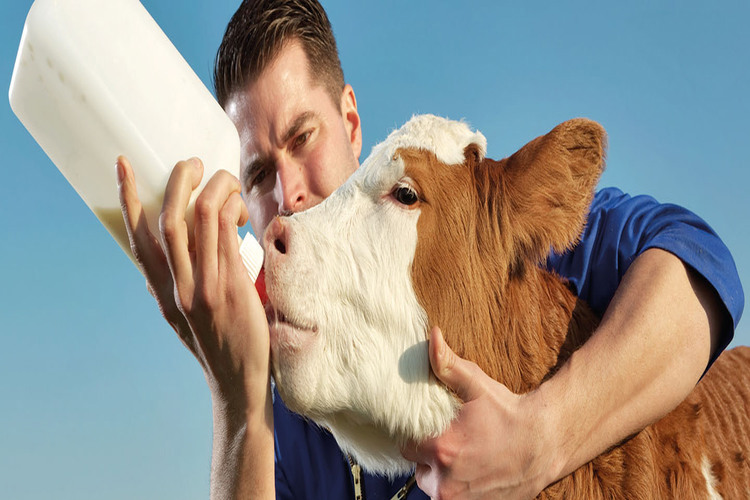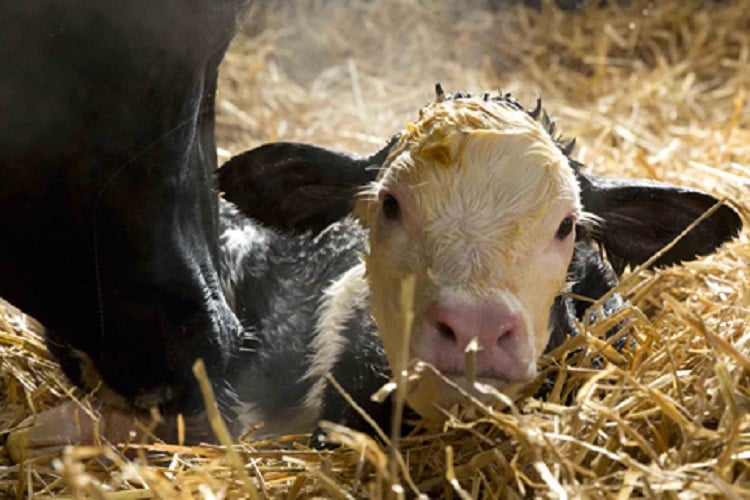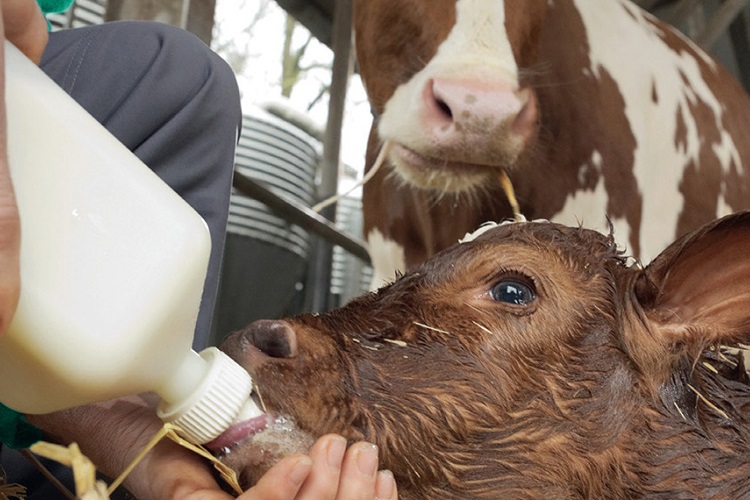- LifeStart
- Colostrum Management
Key takeaways from the research:
- Pasteurization of colostrum or transition milk reduces the bacterial load without a negative impact on other quality aspects
- Feeding pasteurized colostrum and transition milk improves health and reduces mortality of dairy calves in the first 3 weeks of life

Even in case of good colostrum management, pasteurisation leads to a further improvement of health
The immune status of pre-weaned calves directly depends on the quantity and quality of colostrum ingested during the first few hours of life. Calves should receive colostrum as soon as possible after birth, with at least 4 to 6 litres ingested within the first 8 hours. If passive transfer of immunity fails, rates of respiratory and digestive disease may increase, as well as mortality.
Pasteurization improves the quality of calf colostrum
Next to timing, management of hygiene of colostrum and milk feeding is vitally important to bolster health status. Even if hygienically preserved and fed, both colostrum and milk can contain bacteria and other pathogens which can seriously compromise calf health. Pasteurization of cow colostrum and milk significantly decreases bacterial load while maintaining their high quality and natural factors. Studies in the past have found that calves fed on-farm pasteurized colostrum and waste milk have had lower morbidity and mortality when compared to those fed non-pasteurized colostrum and milk. Until now no study had quantified the effects of pasteurization when a newborn calf feeding schedule with high quantities of colostrum is used.
Pasteurisation of colostrum and whole milk reduces neonatal disease and calf mortality
In their research article entitled 'Colostrum and milk pasteurisation improve health status and decrease mortality in neonatal calves receiving appropriate colostrum ingestion' Armengol and Fraile present a study involving 587 neonatal Holstein calves. They evaluated how on-farm pasteurization of bulk tank milk and raw colostrum could improve health status, reduce neonatal disease and decrease mortality during the first 3 weeks of life in calves receiving appropriate amounts of colostrum. The results are compared with calves receiving similar amounts of non-pasteurized colostrum and whole milk of similar quality.
The results indicate that pasteurisation of colostrum and milk does indeed significantly improve calf health and reduce both morbidity and mortality during the first 3 weeks of life, compared to calves receiving the same amounts of colostrum and milk feed, but without pasteurization.



